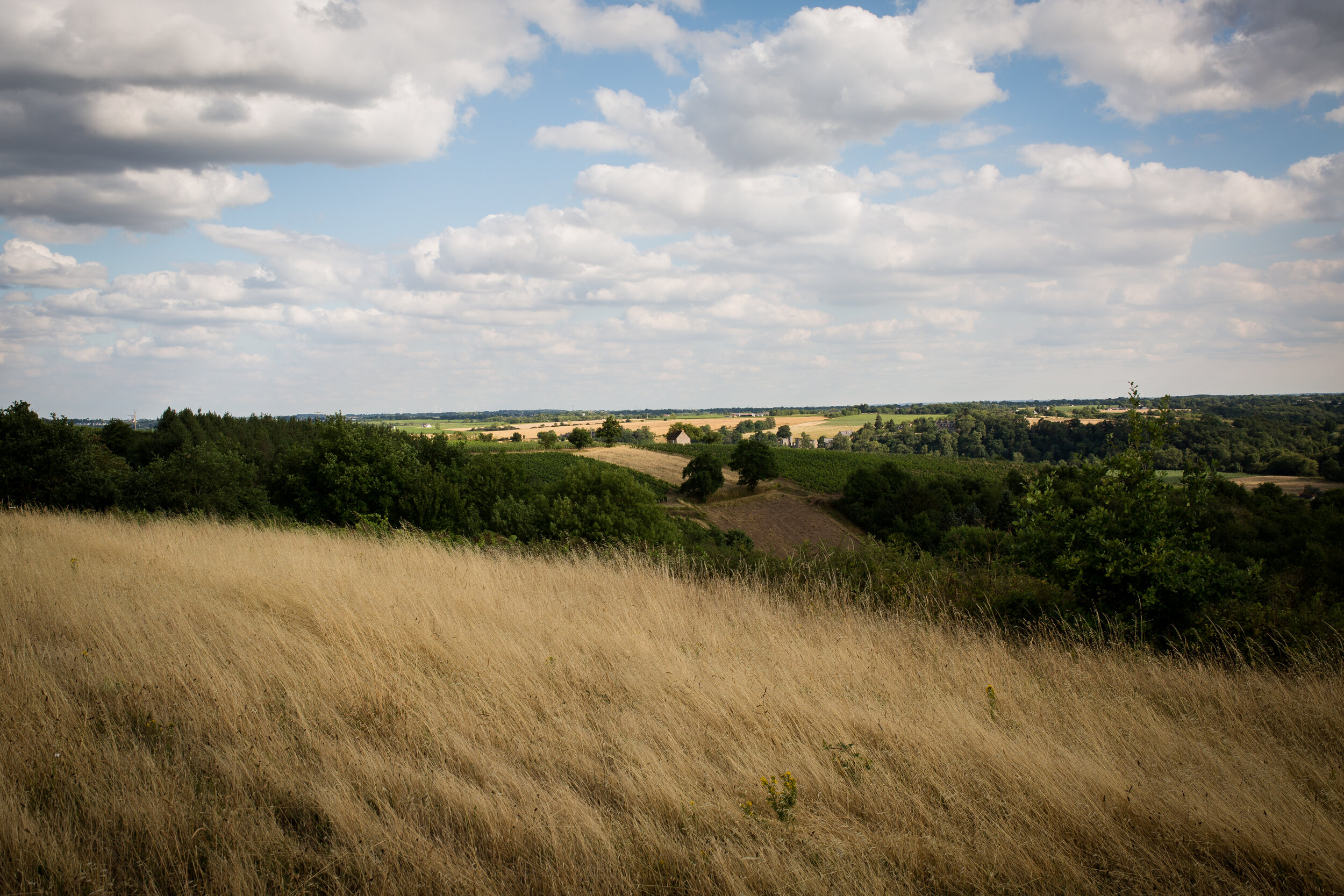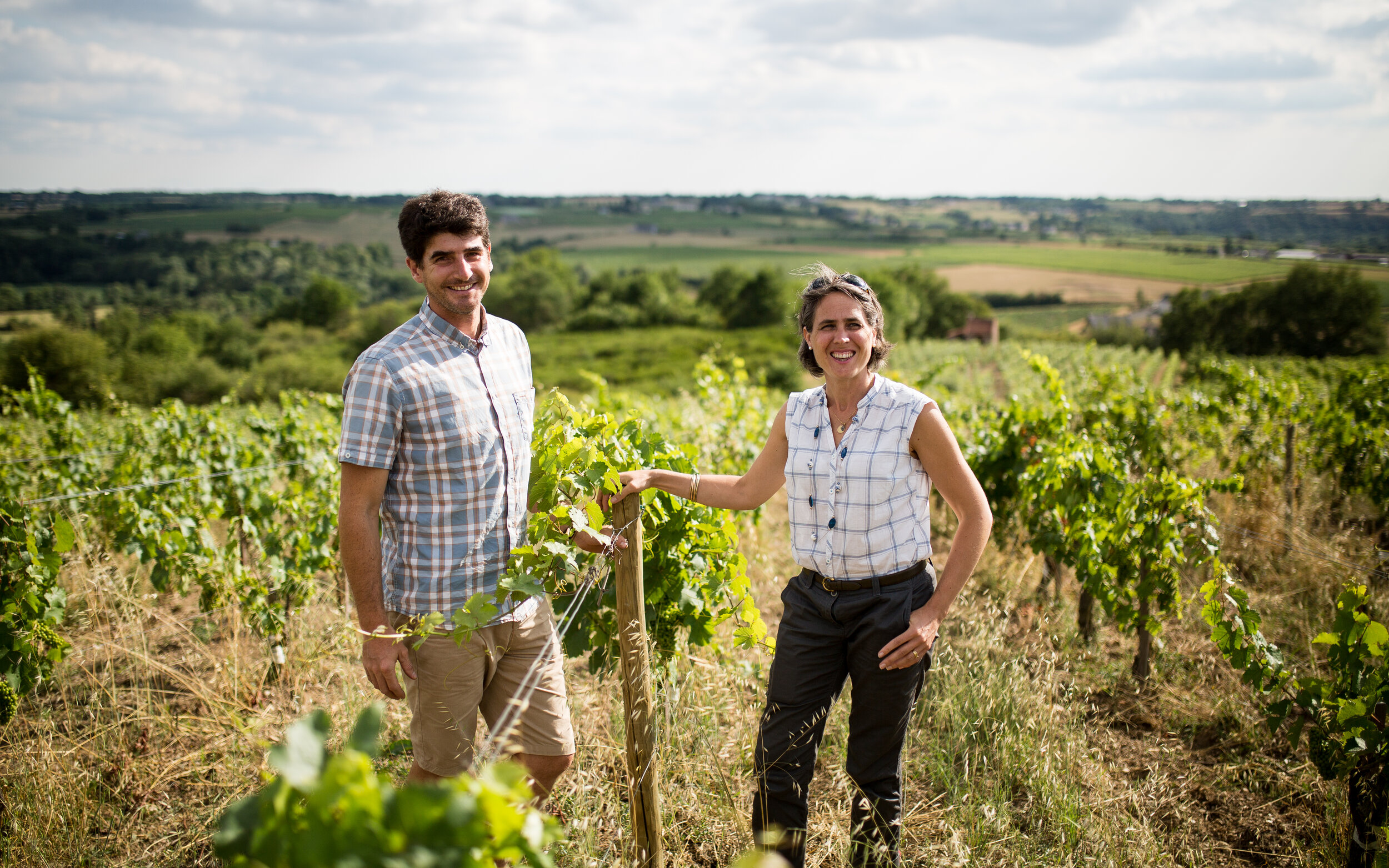
Terre de l’Elu
Terre de l’Elu, Anjou
There is a beautiful and timeless quality to the architecture of Anjou. Anchored by Angers in the west and Saumur further to the east, the buildings of this area are wonderfully monochromatic with pale but warm limestone walls and somber black slate roof tiles. So commonplace is this pattern of architecture that it is easy to become disoriented and not knowing exactly where you are until you look for the closest steeple or road sign. This color palette is not a unique quirk of the local masons but the result of eons of geological history. Anjou is where the border between the ancient carboniferous bedrock of the Cambrian gives way to the tuffeau of the Cretaceous, or more simply, where schist, quartz and slate transition to limestone and chalk.
If that was the whole of the geological story Anjou had to tell, it would be interesting enough, but there are several other plots to reveal. The gentle landscape of the Loire Valley is a product of countless centuries of wearing down of the earth and carrying it out to the Atlantic. This is not the Mosel or Ribeira Sacra, and while it may not be dramatic, it has its own uniquely comforting charm. Where ridges and hills do exist they are carved by the tributaries of the lazy Loire – such as the Angevin Layon and Aubance. These parallel rivers flow from the southwest to the northeast both joining the Loire slightly downstream from Angers. Each is bounded by gentle slopes with the best vineyards located on the respective north banks of each, giving them full southern exposure. This is the setting for Terre de l’Elu.
Totaling 16 hectares spread over several small plots, Terre de l’Elu is located in the tiny village of Saint-Aubin de Luigne. Their vineyard sites are scattered from the village of Chaume, famous for its sweet style of botrytized Chenin Blanc, to Chaudefons-sur-Layon near the confluence of the Layon and Loire. In this warmer and drier part of the Anjou red varieties are widely cultivated alongside the traditional Chenin Blanc – all planted on the black slate soils of the western portion of Anjou.
Terre de l’Elu was originally established by two brothers in the 1950s who sold their grapes to local negociants and in 2008 they retired, selling their estate to Thomas and Charlotte Carsin. Thomas, an agricultural engineer by training became enamored with viticulture during his studies and once his formal education was complete, he traveled to Sonoma, Champagne and Provence supporting himself as a viticultural consultant while learning enology by working in various cellars. When Charlotte and Thomas found these vineyards for sale, it was an easy, if life-changing decision to make.
Thomas and Charlotte farm Terre de l’Elu organically and biodynamically – certified by ECOCERT and DEMETER. After years of experience advising others he has put his principles to work at his own estate: native cover crops are encouraged, the soil is tilled and no synthetic products are employed. These efforts have brought new life to the soils allowing him to preserve many of the old vines on the property. New plantings have been made using selection massale to preserve the diversity of his sites. About half of his vineyards are planted with equal proportions of Chenin Blanc and Cabernet Franc – the two most common varieties grown in the Anjou with smaller plantings of Gamay, Grolleau Noir and Gris, Sauvignon Blanc, Chardonnay, and Pineau d’Aunis. Each plot and variety is harvested by hand and brought to the cellar where the whites are pressed and allowed a short period to settle. Most of the red wines are whole cluster fermentations. Only natural yeasts are employed, macerations are long and the wines age in tank, barrel or amphorae. Sulfur usage is minimal and often added just before bottling.
In 20018, Thomas and Charlotte made the difficult decision to withdraw their estate, Clos de l’Elu as it was formerly named, from the AOP of Anjou. After years or having wines being rejected by the appellation and the associated costs and delays this bureaucratic nightmare entailed, they will all now be labeled Vin de France. Of course, there’s a law that forbids the use of “Clos” in naming wines at this level so they’ve changed their name to Terre de l’Elu.
Wonderful people making wonderful wines in a beautiful corner of France.
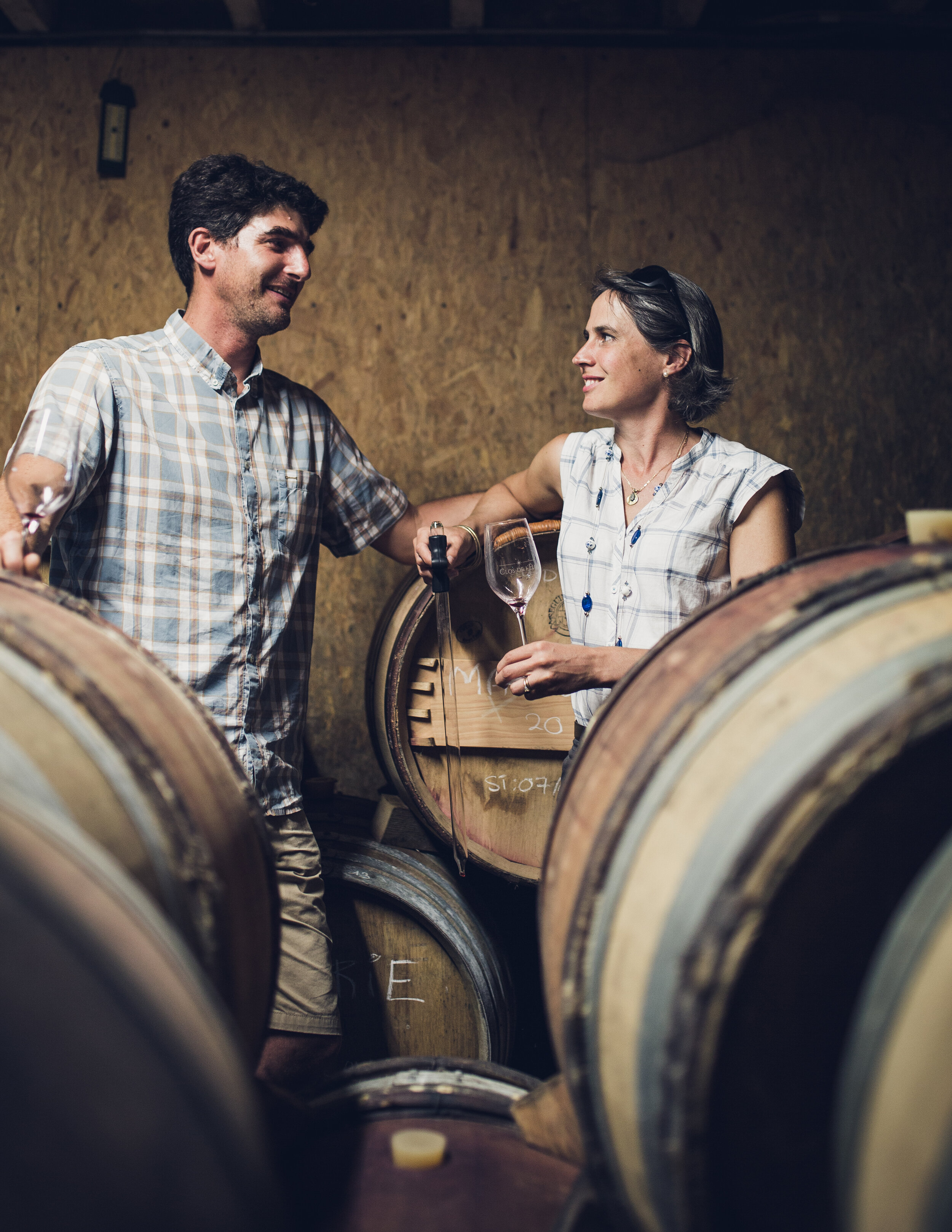
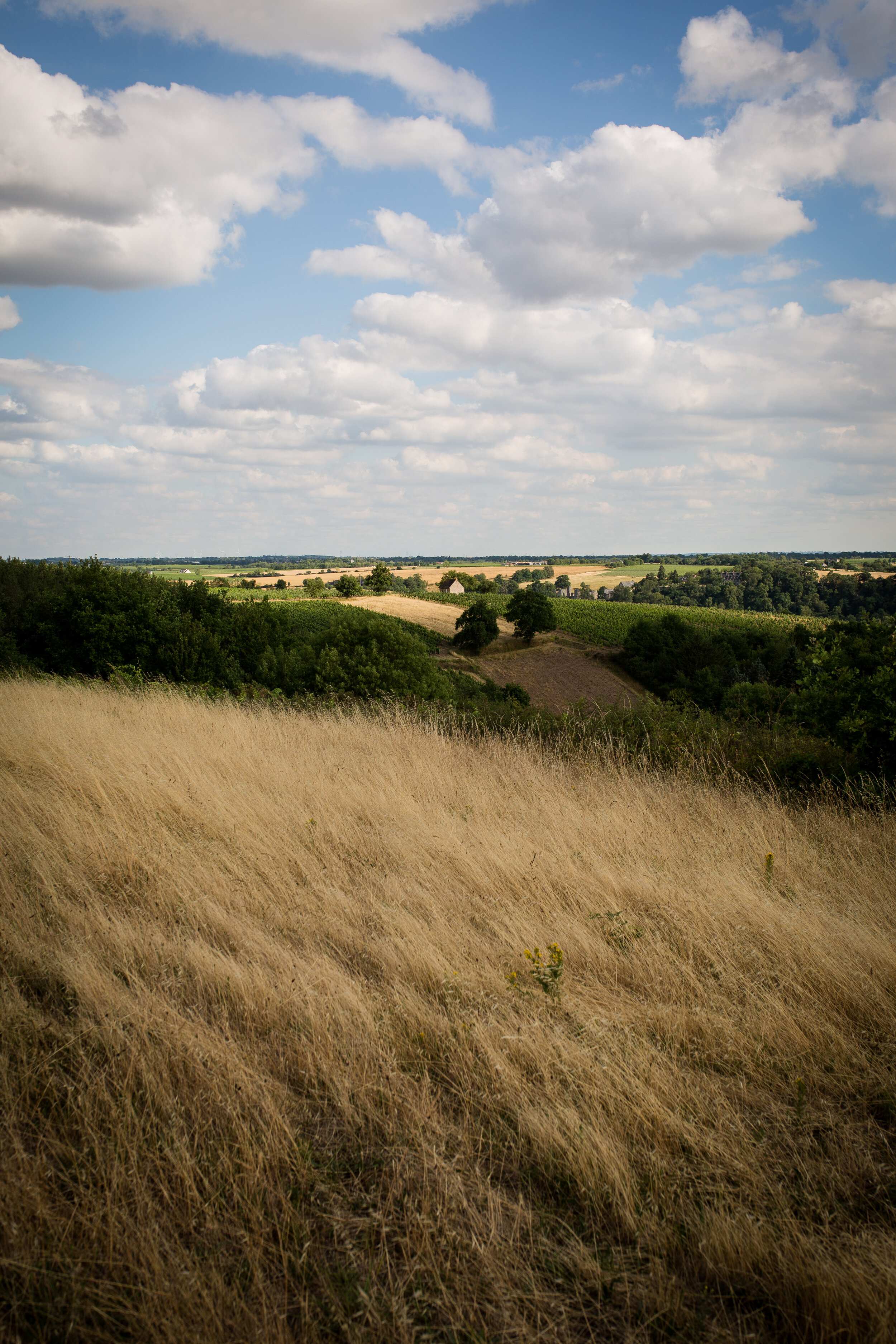
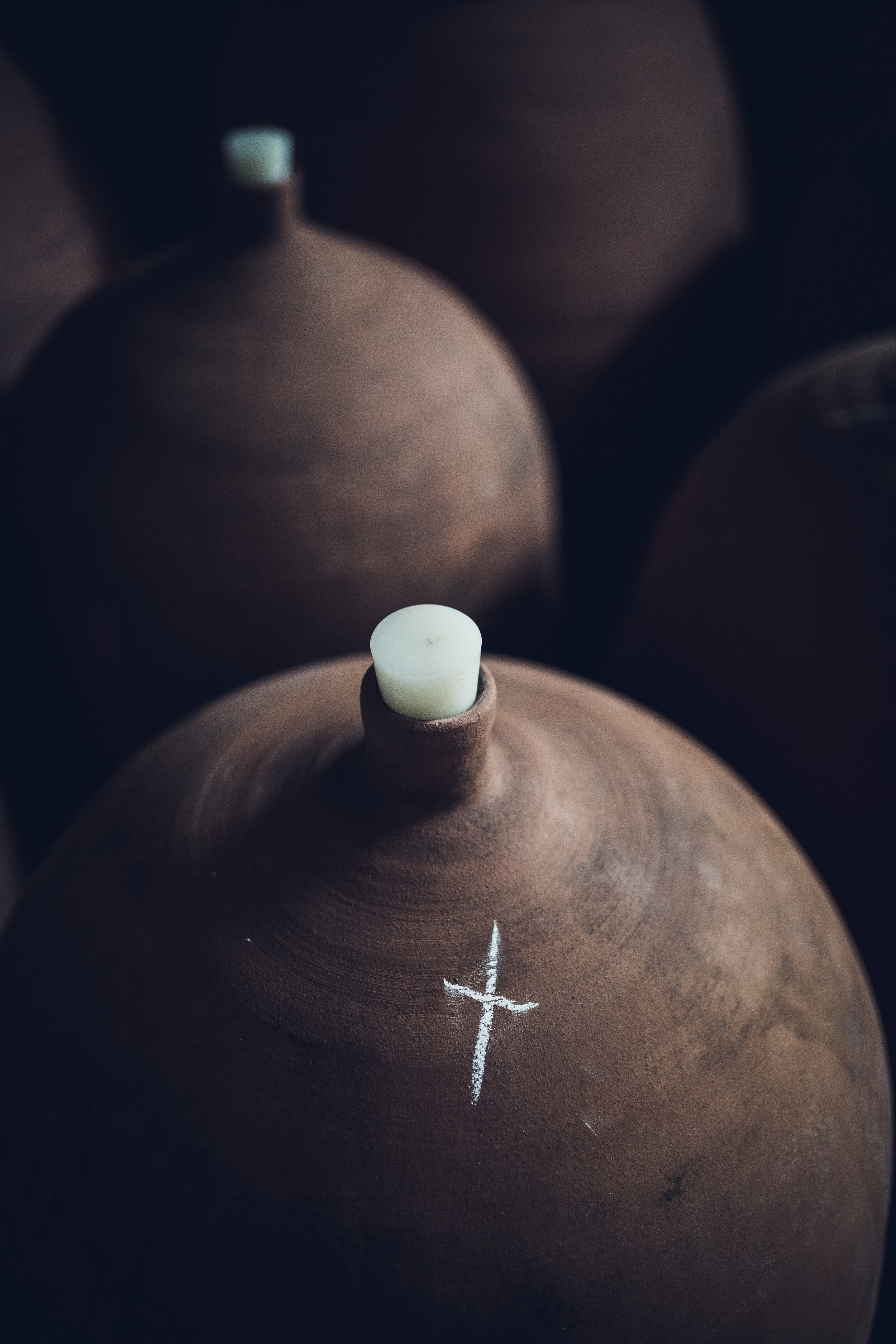
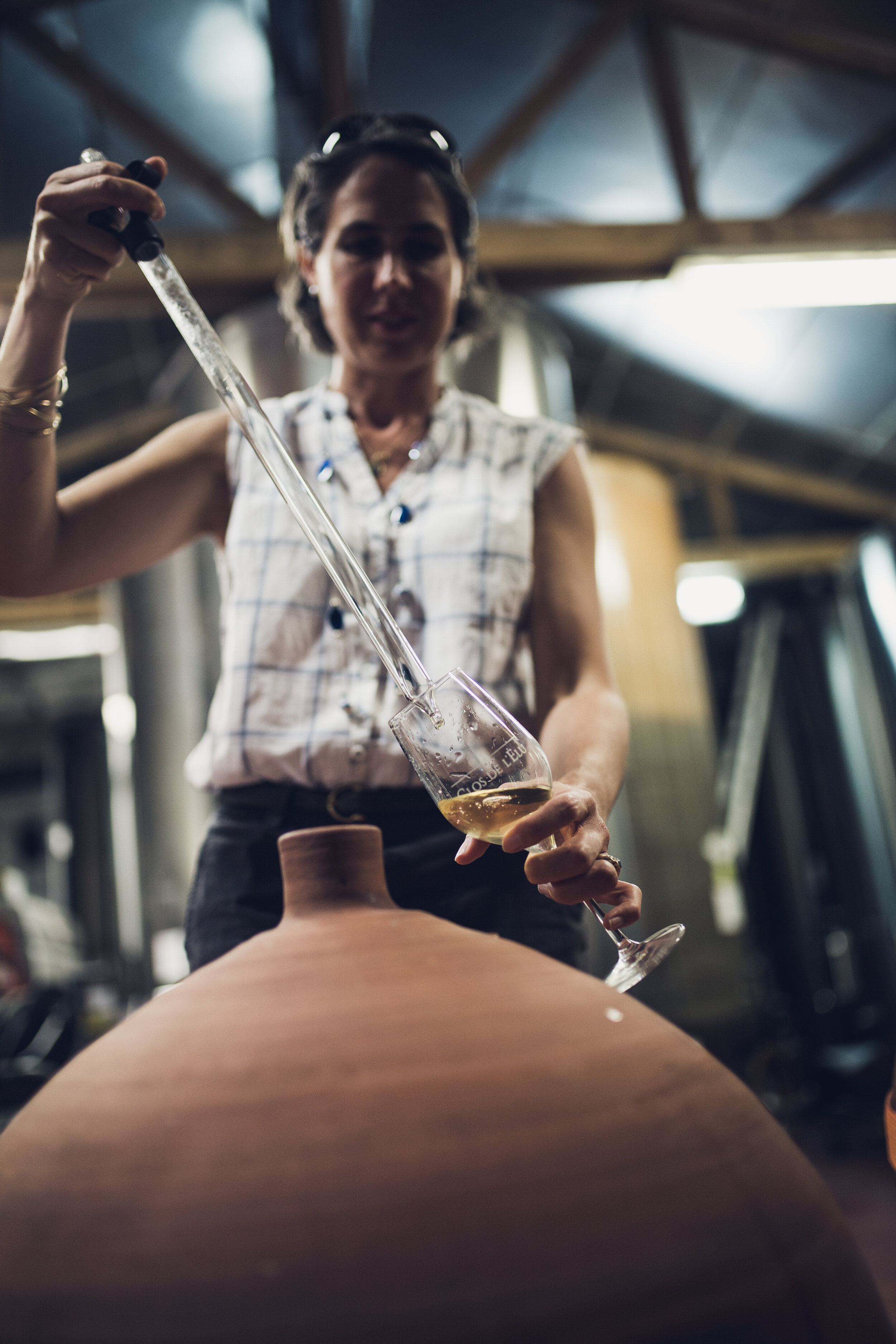
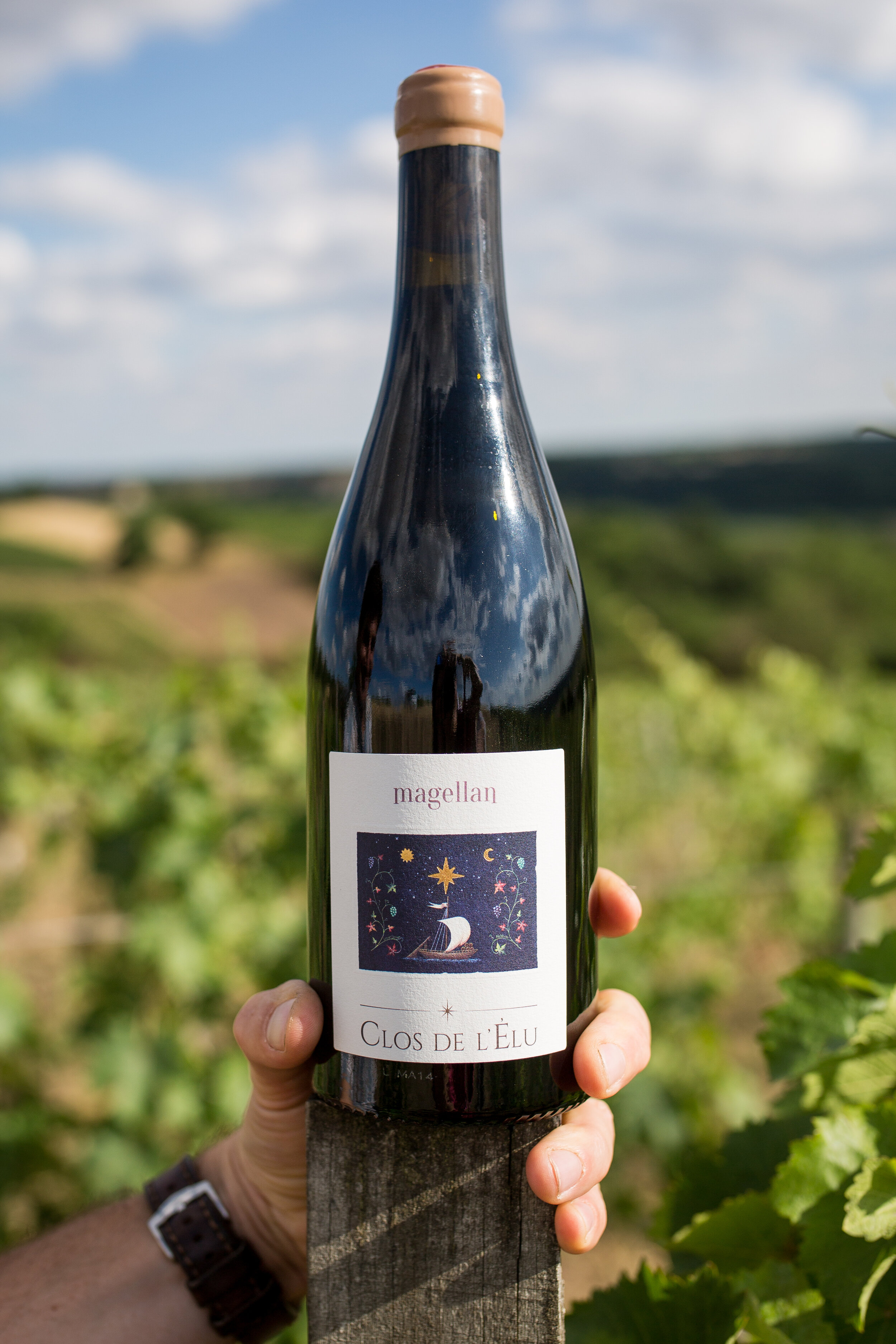
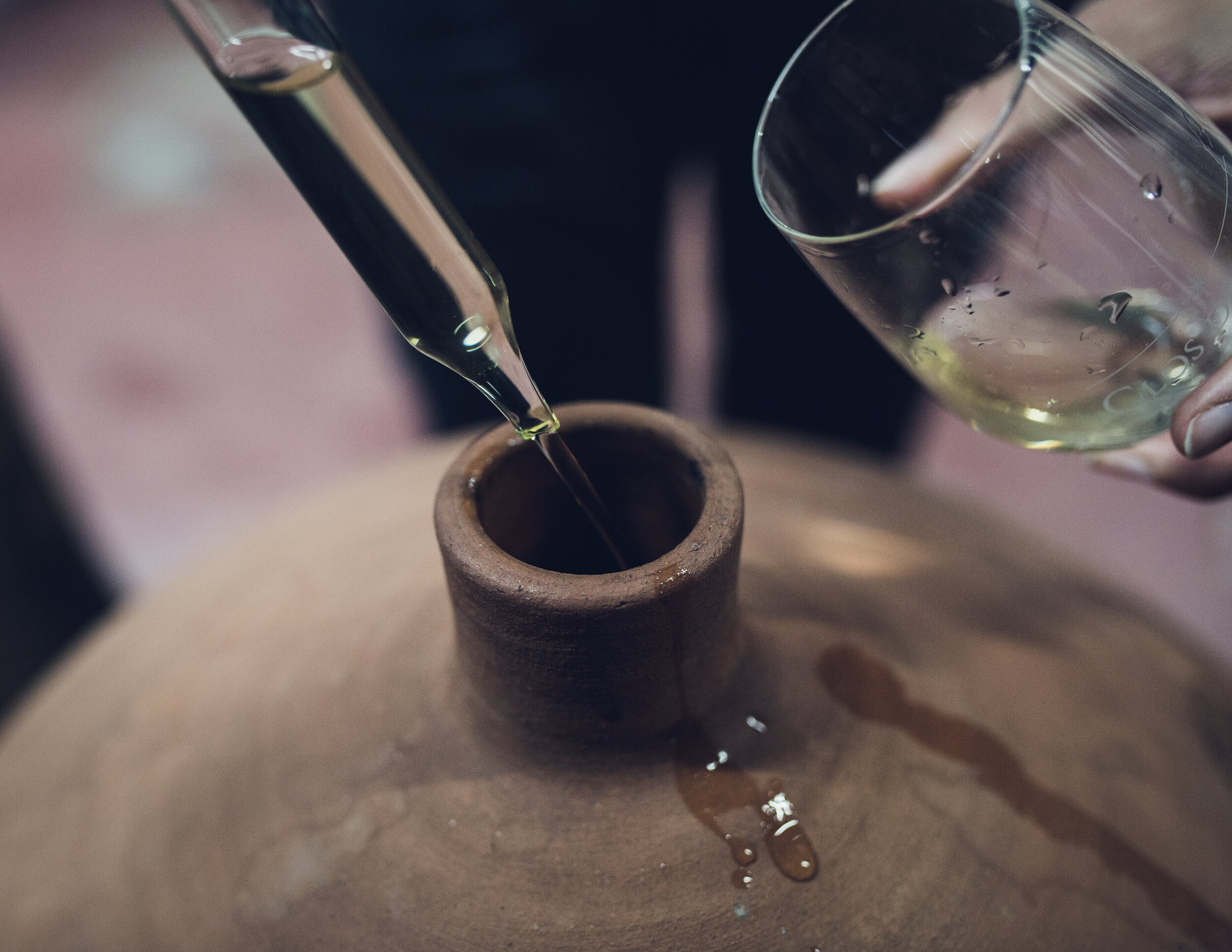
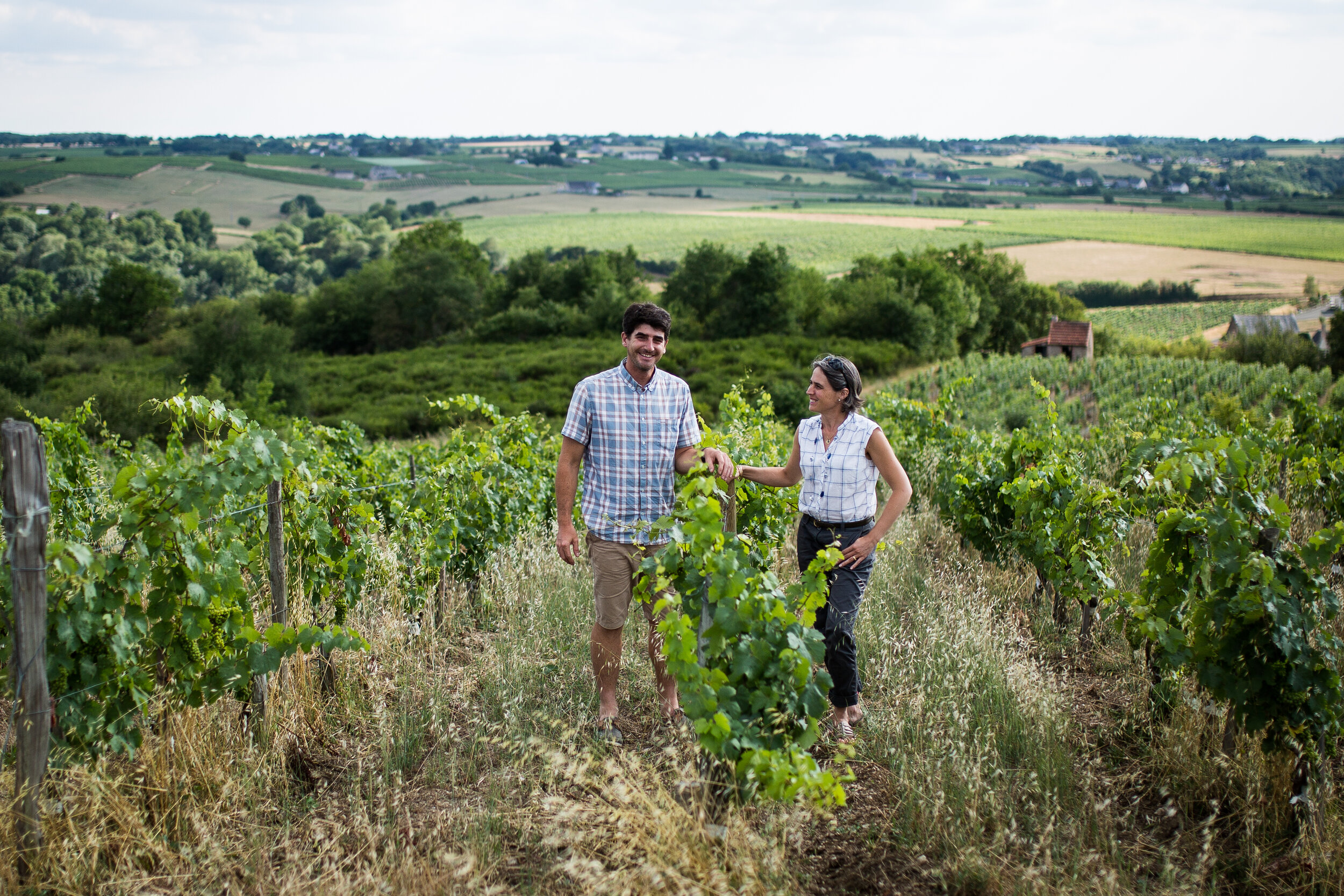
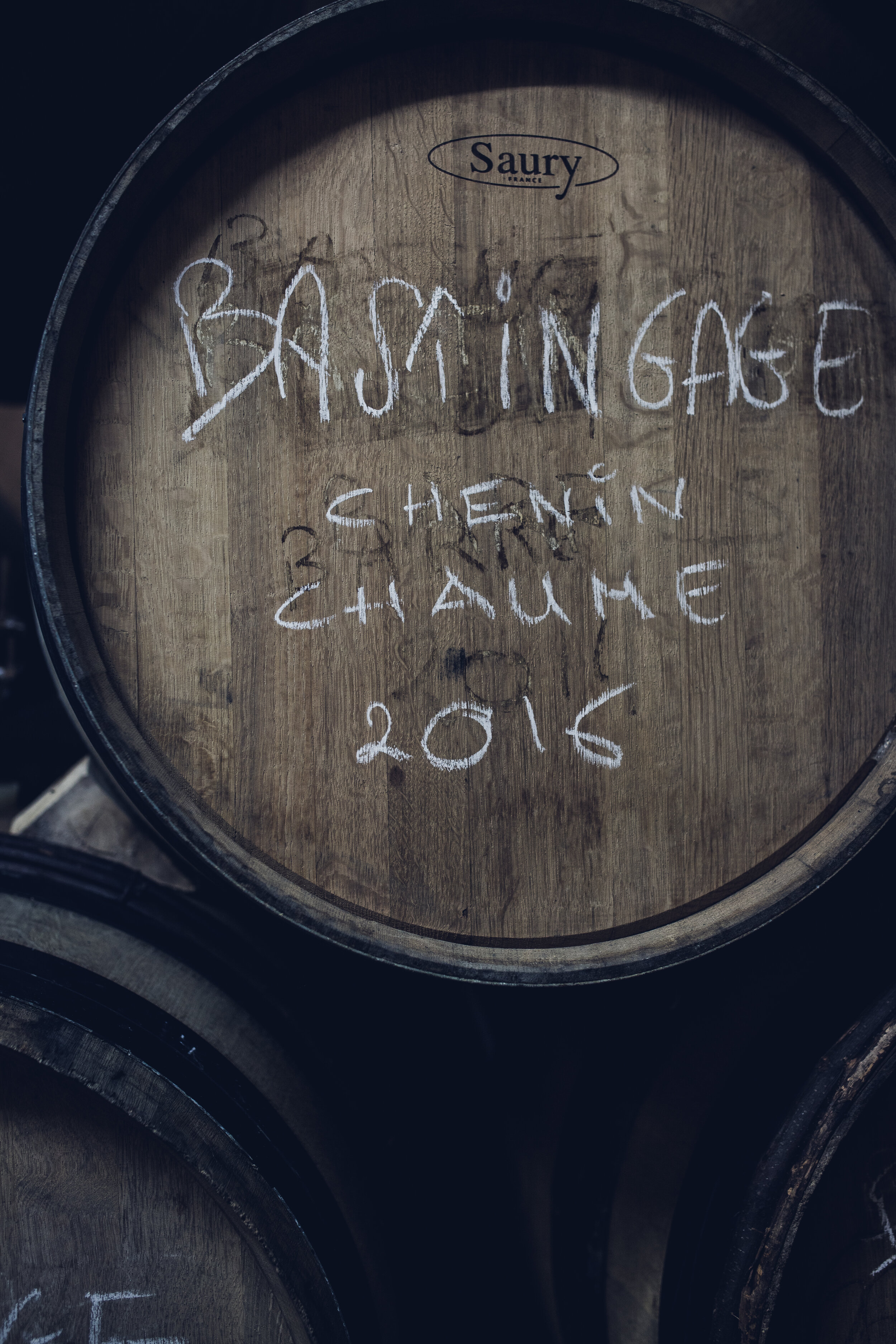
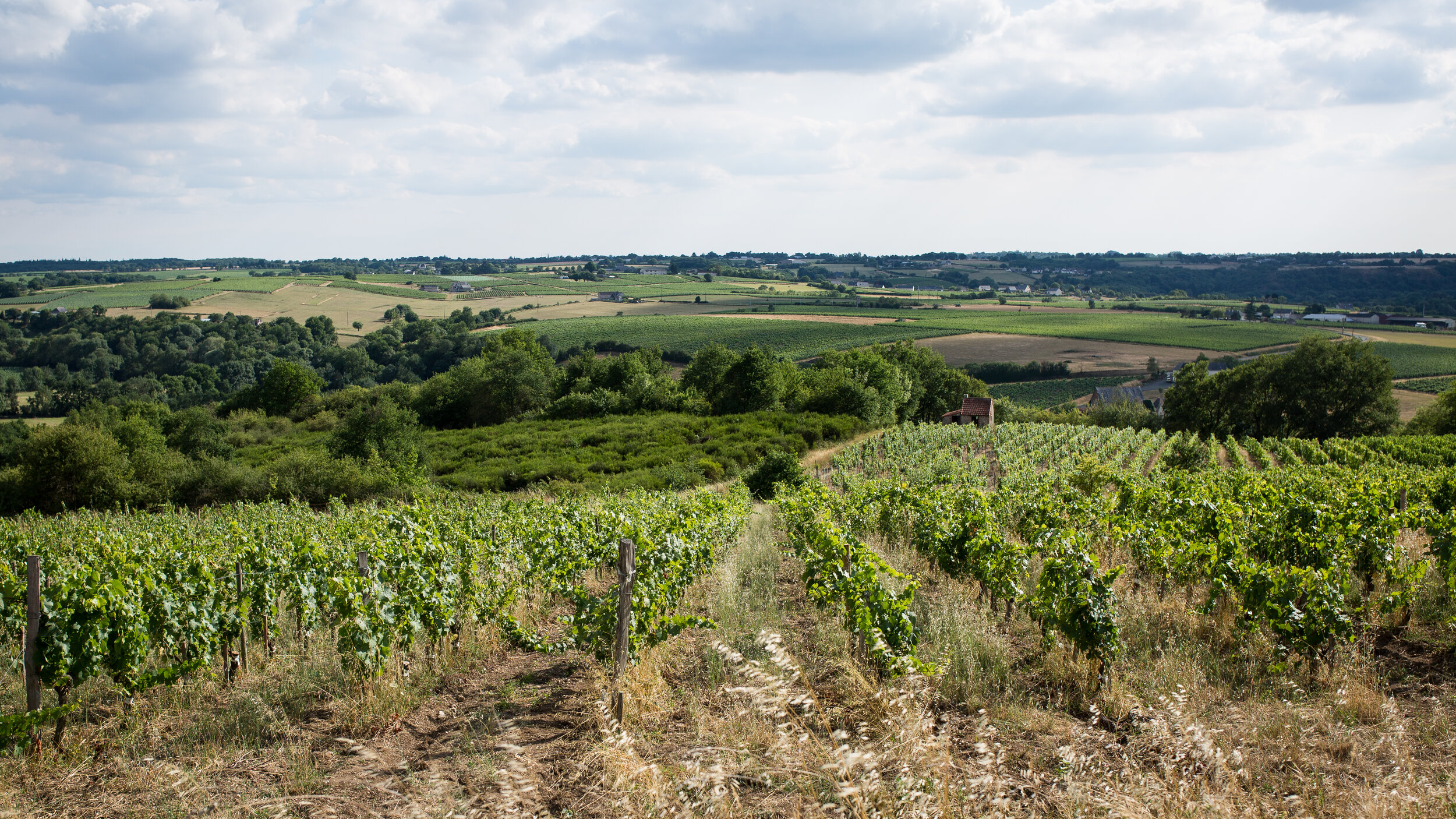
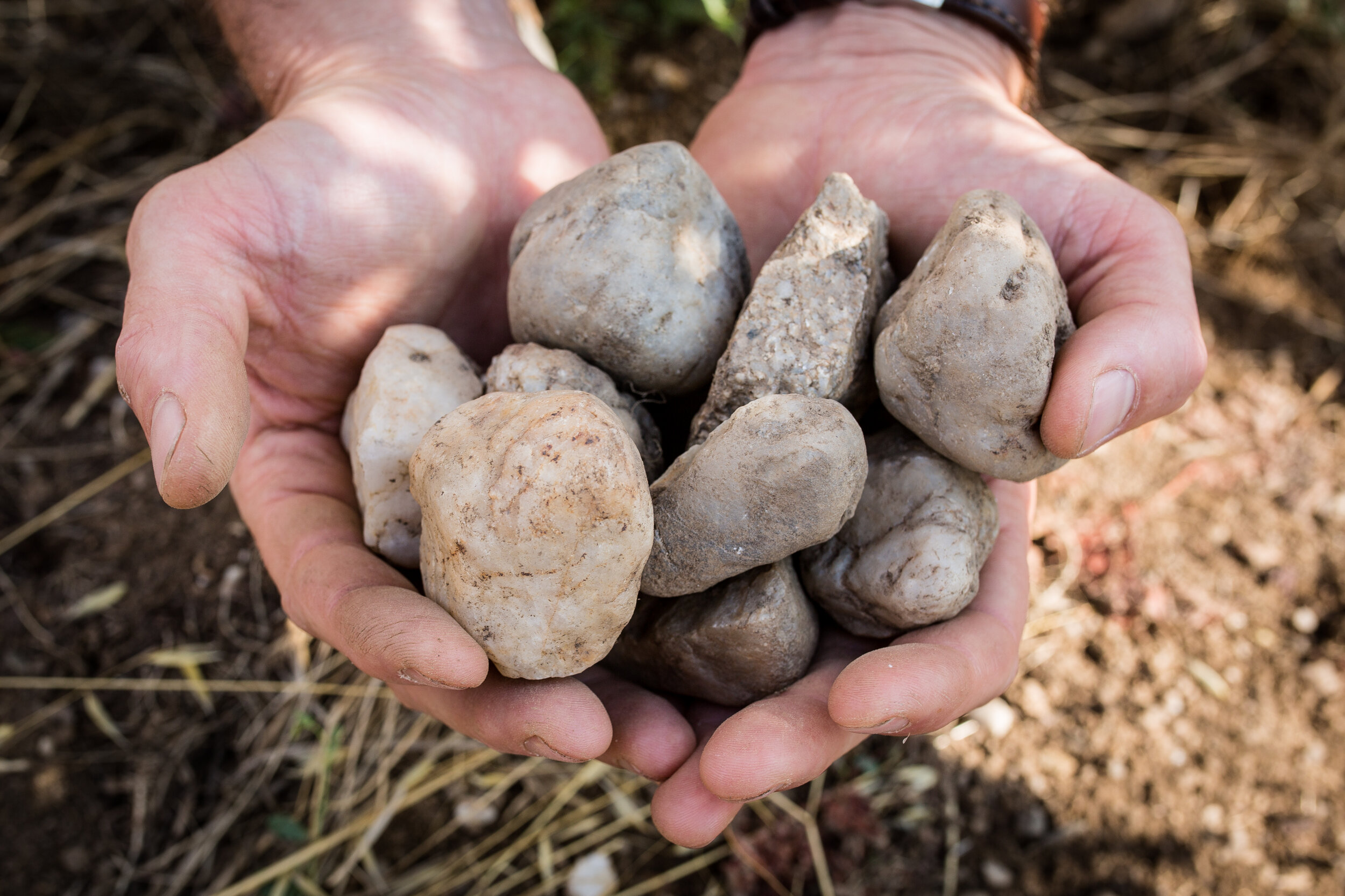
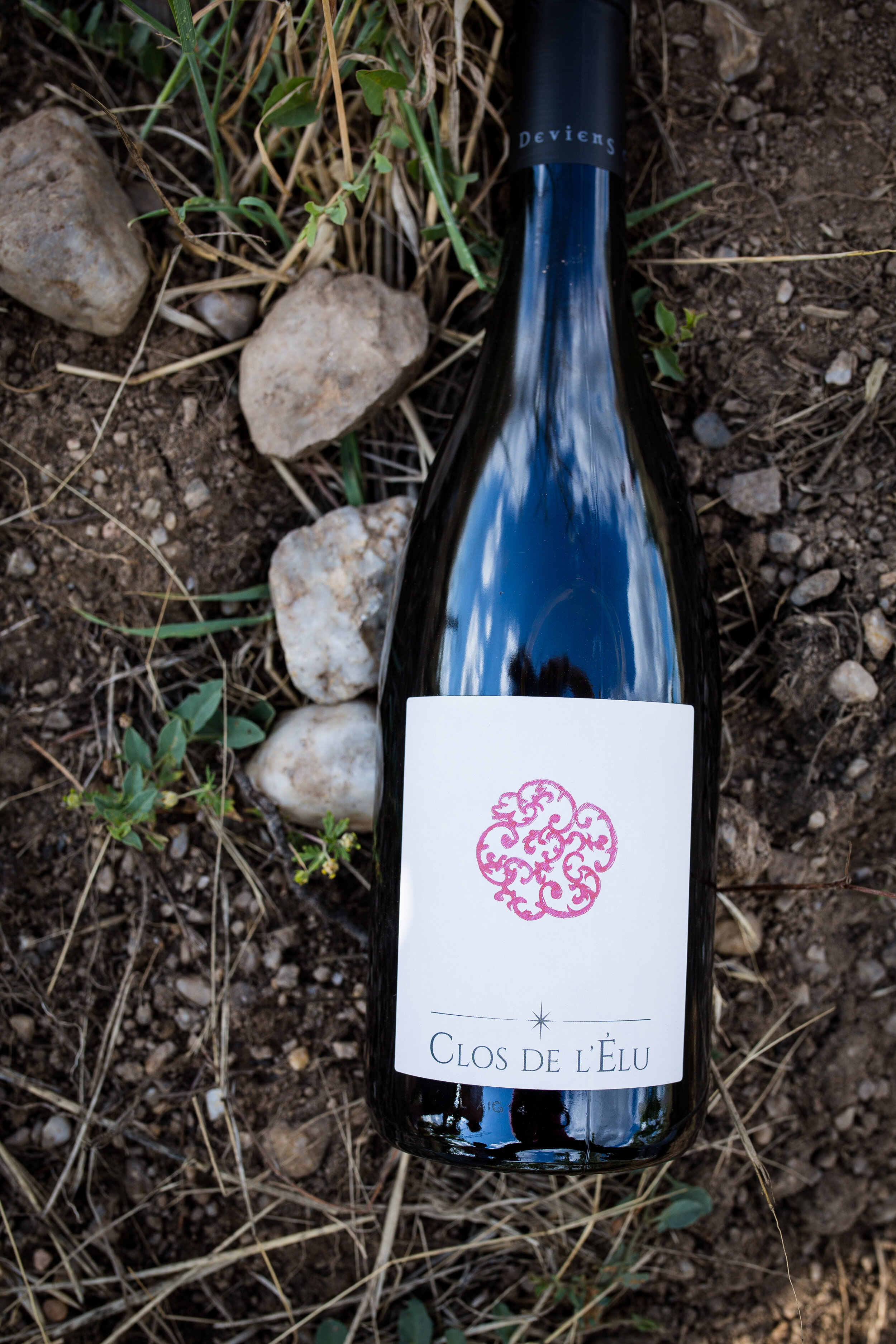
Terre de l’Elu
Terre de l’Elu operates a small tasting room but appointments are strongly preferred.
